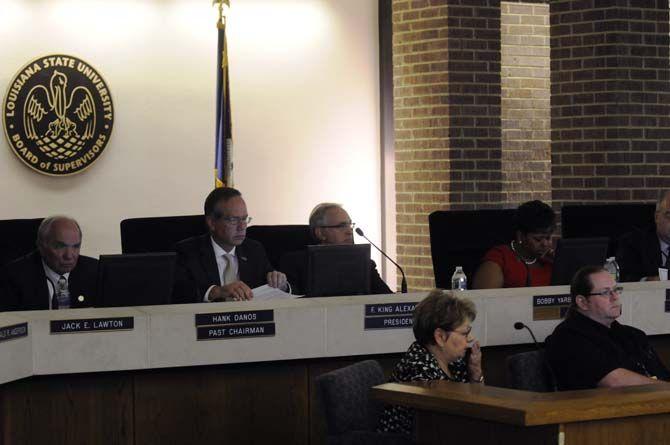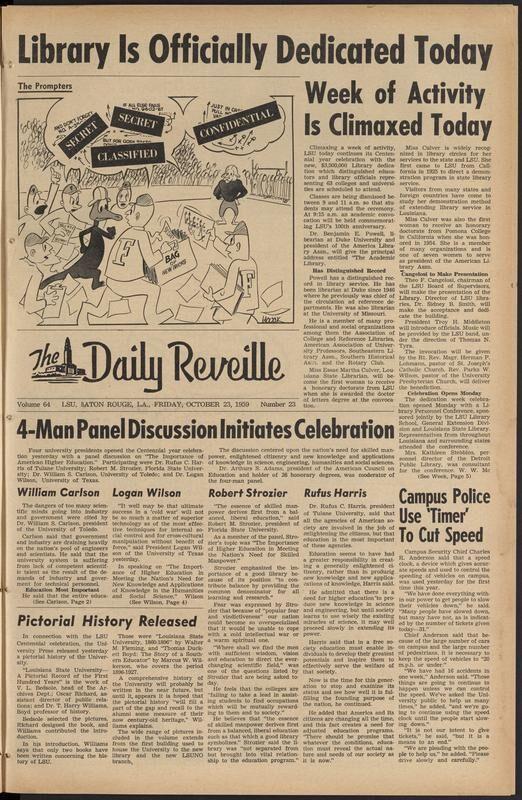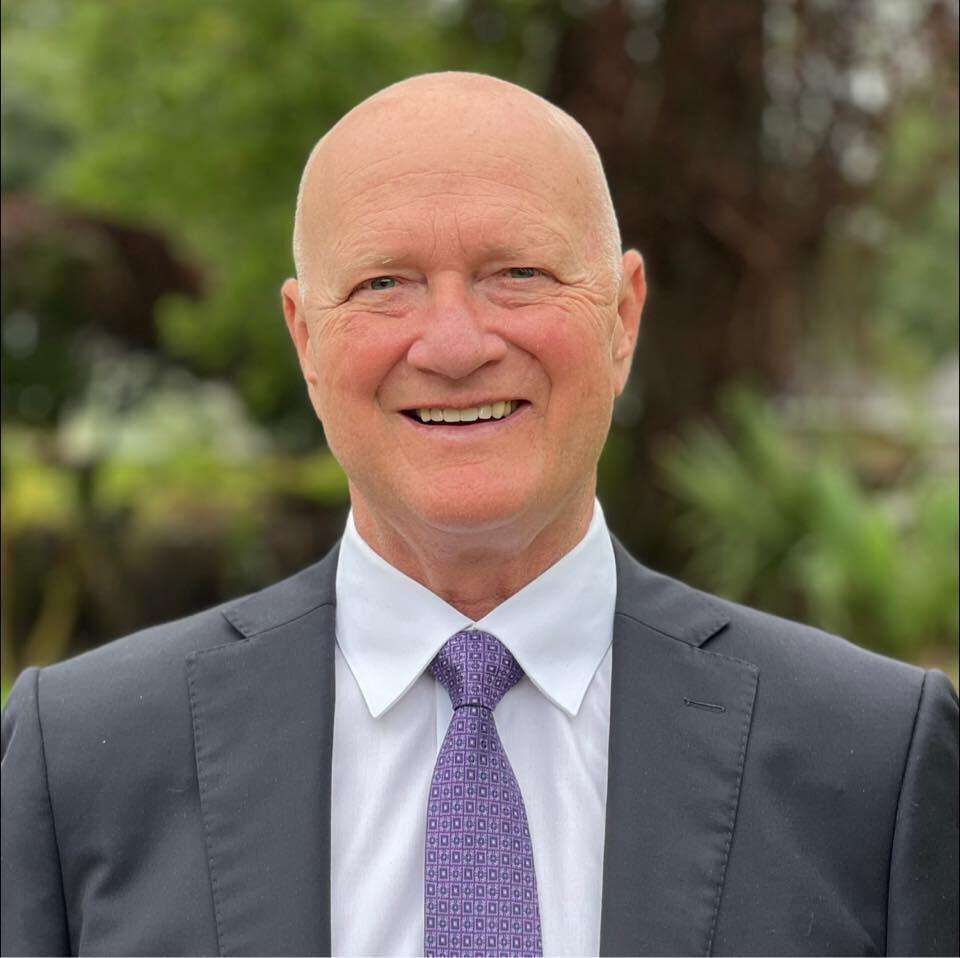The LSU Board of Supervisors approved amendments to contracts between the University’s hospitals and their private partners at a special meeting Oct. 1 to satisfy the requirements for federal funding from the Centers for Medicare and Medicaid Services.
The LSU System made the move to privatize the management of seven charity hospitals in 2012 because of the cost of operating the facilities. The number of hospitals involved in the plan has since been reduced to six. Under the new system, the University owns the hospitals, but the state pays private partners to run them, said Doreen Brasseaux, University assistant vice president of public policy.
The privatization of the six state-owned hospitals, which provide care for the uninsured, were completed through no-bid contracts called Cooperative Endeavor Agreements, or CEAs, with nearby hospitals or research facilities.
CEAs aim to enhance medical education for students, improve Louisiana’s health care workforce and, based on available financing, provide essential clinical services to the state’s uninsured and high-risk Medicaid populations.
The state government reported at the end of the 2014 fiscal year that the privatization deals were $52 million under budget. The Daily Reveille previously reported that Jeff Reynolds, Department of Health and Hospitals undersecretary, said it was unclear whether the $52 million would be combined with other programs or if the excess funds carry over to the next year.
CMS rejected federal financing plans for the hospitals in May, saying CEAs could not be approved until the state’s “required funding” commitments to private partners were deleted. Revised CEAs removed all state funding requirements for patient care, and DHH is no longer named as an obligational party.
A University document titled “Revised and Restated Cooperative Endeavor Agreements” states that LSU’s private partners are confident in these new agreements.
“They have insisted that they are ‘all in’ to the extent that they maintain [their] own business integrity and it is not degraded by a lack of funding from the state,” according to the document. “As long as their balance sheets remain solid and are not harmed by these agreements, they will do whatever they are able to do with their expertise to contribute to LSU in a cooperative agreement to assist LSU in its obligations to the public purpose.”
Revised CEAs allow private partners to terminate the CEA, with or without cause, on 60 days’ written notice. According to “Summary of Proposed Changes to Amended and Restated Cooperative Endeavor Agreements,” the University sought a similar right to terminate the agreements at its convenience, but none of the private partners agreed.
Changes have also been made to the private partners’ requirement to continue providing core services, defined as significant services previously provided by the University, and key service lines, services necessary to support the University’s graduate medical education programs. The changes limit these obligations.
“When there’s no money to provide the care, you have to make decisions about what to do,” said Patrick Seiter, an attorney who worked on the agreements. “It’d follow the same process LSU follows with budget cuts.”
Ann Duplessis, chairwoman of the Board of Supervisors, said while the amended CEAs are not perfect, they are a step in the right direction.
“I think we are pleased that we have gotten to the point we’re at now, that we can now consider the CEAs that are before us,” Duplessis said. “Is it a perfect world? No, but I do believe that we are well aware our mission hasn’t ended now, that this gives us an opportunity to begin to develop those additional partnerships to continuously have options B and C, and so that it serves to protect LSU and so that our core purpose is served.”
Board member Jim McCrery was not as positive about the changes.
“We only have two months to find a new partner — it’s almost impossible to find a new partner in two months,” McCrery said. “I’m not as confident as you are that the shell that remains if a partner leaves will have sufficient personnel to carry on, because a partner could take personnel with it.”
Robert Yarborough, chairman of the board’s health care committee, is confident LSU students would not be affected in the unlikely case a partner pulls out of the CEA.
“The government has always found a way to provide that type of personal care and to support their medical training of students around the country,” Yarborough said. “I think the important thing is that the organization would still be present through the structure that we have set up to where we could find another partner in a relatively quick fashion.”
Yarborough emphasized the importance of medical programs and their students in the new CEAs.
“What I’d like to focus on is how it ensures the continuation of the graduate medical students’ education,” Yarborough said. “Many of those hospitals that we have these partnerships with were teaching our future doctors, so it was very important that the funding screen that goes and comes through the federal government remained intact so that these hospitals could be viable. And then the result of that, obviously, is that the students studying medicine would continue to gain the experiences in areas and types of activities that go on in the hospital.”
Public commenters at the board meeting expressed concern about the changed CEAs. Brad Ott, with Advocates for Louisiana Healthcare, said the board should deter the vote on the amendments until the regularly scheduled meeting on Oct. 24.
“The website did not have any of the schedules or the exhibits,” Ott said. “I encourage you to defer this vote today to your regularly scheduled meeting so that we can see all the schedules, all the exhibits, and make a decision, because this is undoing everything, from what I can see.”
Ott said the Huey P. Long Medical Center in Pineville, which closed June 30 as a part of the state’s privatization plan, was not mentioned in these new deals.
Janet Hayes, the second public commenter, questioned if the board was taking the lives of the poor into account.
“I’m just wondering how much value you place on human life,” Hayes said. “I’m not sure about any of you, if any of you are a paycheck away from homelessness because you’re working for a corporation that doesn’t pay you a living wage. I mean, I’m interested in the public purpose, but when can we get that?”
Duplessis responded to Hayes’ comments, reiterating the board’s commitment to the poor and uninsured.
“I can assure you that the members of this board are very in tune and very sensitive to the issues of all of our people in Louisiana,” Duplessis said.
According to the “Revised and Restated Cooperative Endeavor Agreements,” the state government plans to continue pushing for federal approval.
Board of Supervisors approves amended contracts between LSU hospitals and private partners
October 8, 2014
Javier Fernández
The board of supervisors met, Friday, September 12, 2014 in the administration building.
More to Discover










